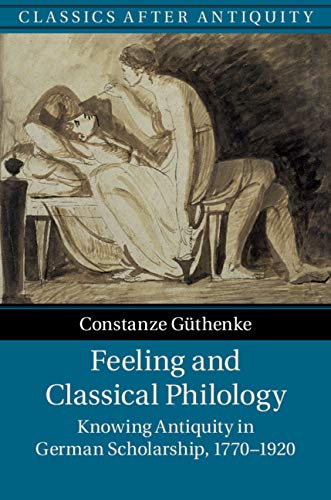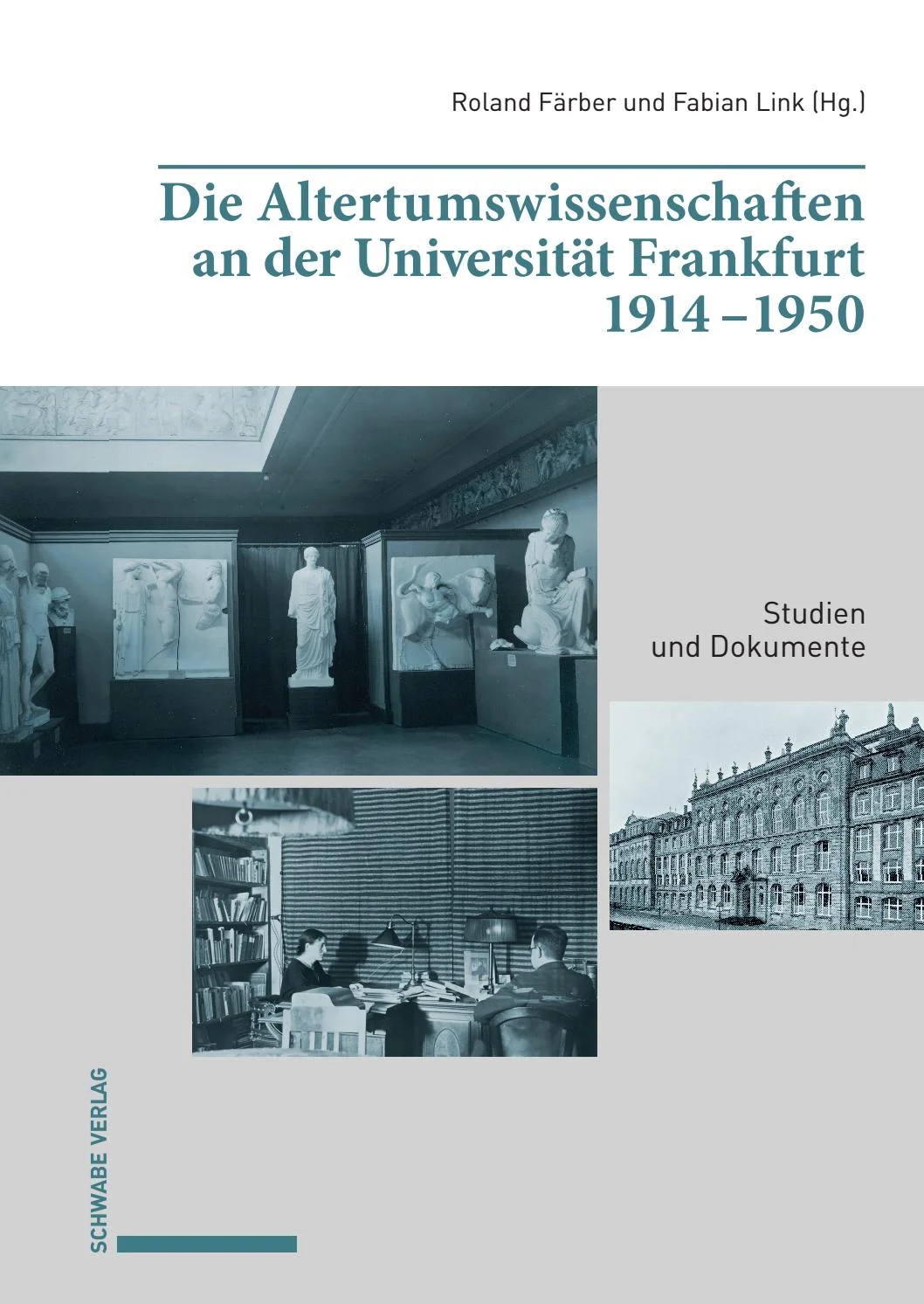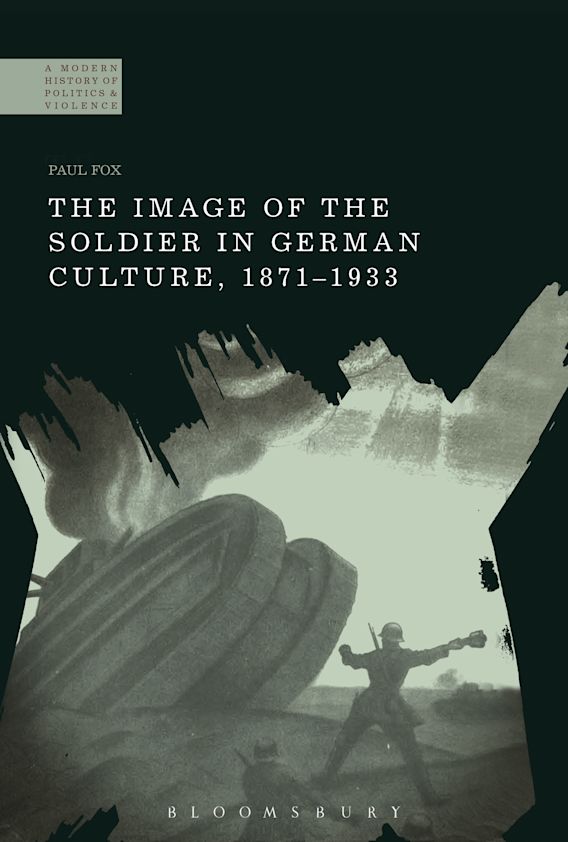Author: Helen Roche
 Review of 'Feeling and Classical Philology' by Constanze Güthenke
Review of 'Feeling and Classical Philology' by Constanze GüthenkeReview of Constanze Güthenke, Feeling and Classical Philology: Knowing Antiquity in German Scholarship, 1770-1920 (Cambridge: Cambridge University Press, 2020), Journal of Hellenic Studies 142, November 2022, pp. 461-2.
What are the implications of ‘the erotics of pedagogy’ in a post-Weinstein world? Constanze Güthenke’s new monograph does not explicitly answer this question – but it does contribute to an ongoing disciplinary debate about the (potentially toxic) discourse of scholarly passion which has long and silently underpinned the ideal of Altertumswissenschaft.Read more...
 Review of 'The Greco-German Affair in the Euro Crisis' by Claudia Sternberg et al.
Review of 'The Greco-German Affair in the Euro Crisis' by Claudia Sternberg et al.Review of Claudia Sternberg (et al.), The Greco-German Affair in the Euro Crisis: Mutual Recognition Lost (Basingstoke: Palgrave Macmillan, 2018), published on the UCL European Studies Blog, 29 October 2018.
This timely, concise, richly illustrated and highly readable survey by Claudia Sternberg, Kira Gartzou-Katsouyanni, and Kalypso Nicolaïdis provides a nuanced approach to the recent vicissitudes of the Greco-German relationship.Read more...
 Review of 'Die Altertumswissenschaften an der Universität Frankfurt 1914-1950'
Review of 'Die Altertumswissenschaften an der Universität Frankfurt 1914-1950'Review of Roland Färber and Fabian Link (eds), Die Altertumswissenschaften an der Universität Frankfurt 1914-1950, (Basel: Schwabe Verlag, 2019), Germania: Anzeiger der Römisch-Germanischen Kommission des Deutschen Archäologischen Instituts 100, 2022, pp. 455-6.
Roland Färber and Fabian Link’s edited collection of essays on the history of classical studies and Altertumswissenschaft at the University of Frankfurt during the first half of the 20th century is a highly unusual volume.
 Review of 'Philanthropy, Civil Society, and the State in German History, 1815-1989' by Thomas Adam
Review of 'Philanthropy, Civil Society, and the State in German History, 1815-1989' by Thomas AdamReview of Philanthropy, Civil Society, and the State in German History, 1815-1989, by Thomas Adam (Rochester, NY: Camden House, 2016), in the Modern Language Review 112 (3), July 2017, pp. 738-40.
The aim of this survey of philanthropy and its entangled relationship with the State in Germany is twofold. Firstly, Adam emphasises the indispensability of private donations and endowments to the maintenance of social and civic institutions in the spheres of education, culture, and poor relief. Read more...
 Review of Paul Fox, 'The Image of the Soldier in German Culture'
Review of Paul Fox, 'The Image of the Soldier in German Culture'Review of The Image of the Soldier in German Culture, 1871-1933 by Paul Fox (London: Bloomsbury, 2018), published in Central European History 53 (3), September 2020, pp. 664-5.
Paul Fox’s recent study, which takes a longue-durée approach to popular representations of Prusso-German militarism, tracing continuities from the mid-nineteenth century to the interwar period, purports to break substantial new ground.Read more...
 Review of Marco Hillemann and Tobias Roth (eds) 'Wilhelm Müller und der Philhellenismus'
Review of Marco Hillemann and Tobias Roth (eds) 'Wilhelm Müller und der Philhellenismus'Review of Wilhelm Müller und der Philhellenismus, edited by Marco Hillemann and Tobias Roth (Berlin: Frank & Timme, 2015), in German Quarterly 90 (4), Fall 2017, pp. 496-7.
At first glance, the graffito-bedizened photograph of an Athenian street which graces this volume’s cover appears bafflingly irrelevant – only once we peer more closely does the Greek street-sign in one corner (‘HODOS MULLEROU’ or ‘Müller Street’) become apparent, giving the reader some clue as to the essay collection’s scope and intentions.Read more...
 New monograph publication: 'Sparta's German Children'
New monograph publication: 'Sparta's German Children'A monograph based on Helen's doctoral research, entitled Sparta's German Children: The ideal of ancient Sparta in the Royal Prussian Cadet-Corps, 1818-1920, and in National Socialist elite schools (the Napolas), 1933-1945, has just been published by the Classical Press of Wales.
"From the eighteenth century until 1945, German children were taught to model themselves on the young of an Ancient Greek city-state: Sparta..."Read more...
On 13 February 2013, Helen presented a paper entitled '"Neither Political nor National Socialist": Former Nazi elite-school pupils' conflicts with their contested pasts' at an international conference on Memories of Conflict, Conflicts of Memory, which was held at the Institute of Germanic and Romance Studies, University of London.Read more...
Presented at an international conference on 'Memories of Conflict, Conflicts of Memory', Institute of Germanic and Romance Studies, University of London, 13 February 2013.Read more...
 New publication: 'The Leaders of the Third Reich and the Spartan Nationalist Paradigm'
New publication: 'The Leaders of the Third Reich and the Spartan Nationalist Paradigm'Helen's article, '"In Sparta fühlte ich mich wie in einer deutschen Stadt" (Goebbels): The Leaders of the Third Reich and the Spartan Nationalist paradigm' has just been published in a volume entitled English and German Nationalist and Antisemitic Discourse, 1871-1945, edited by Felicity Rash, Geraldine Horan and Daniel Wildmann.
The article is based on a paper presented at an eponyomous conference which took place at Queen Mary, University of London, in November 2010.Read more...
